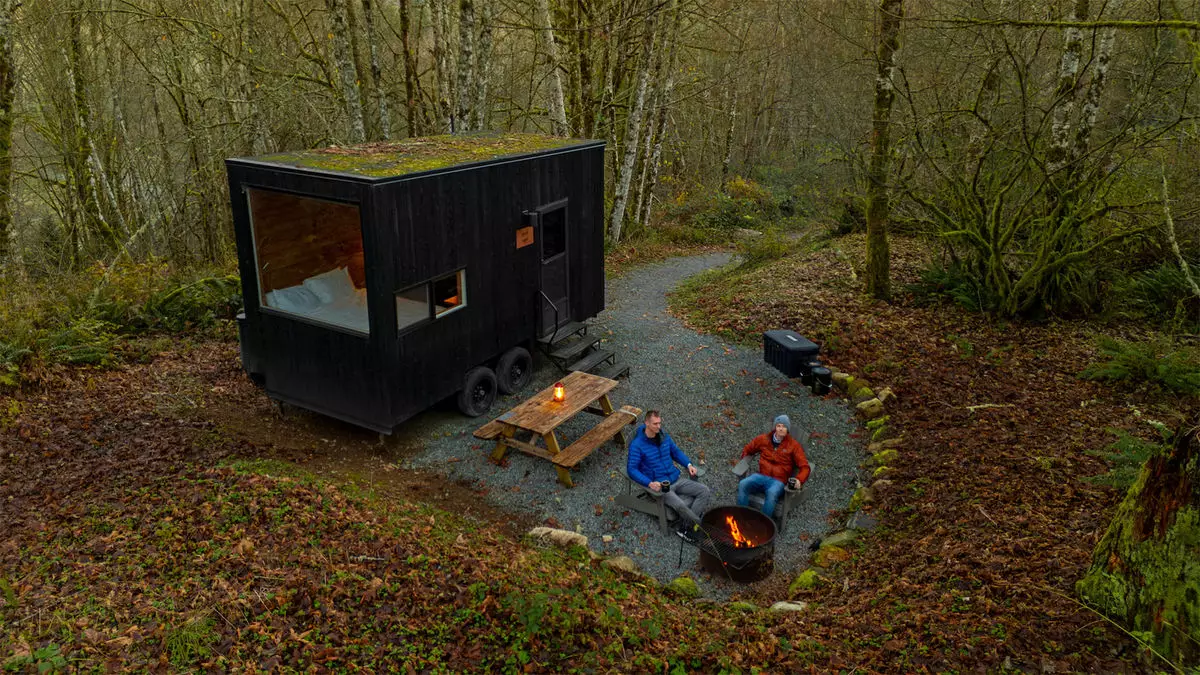The hospitality industry has increasingly turned its gaze toward the great outdoors, a trend that has gained significant traction recently. As travelers seek unique, nature-infused experiences, hotel giants are forging strategic partnerships and acquisitions to capture this burgeoning market. Marriott International’s recent moves, including the acquisition of Postcard Cabins and a collaboration with Trailborn, illustrate a resounding shift within the hospitality landscape focusing on outdoor accommodations. This article delves into these developments and explores how they reflect an evolving ethos in how travelers perceive adventure and relaxation.
Marriott’s acquisition of Postcard Cabins—and its subsequent plans to create an outdoor-focused collection—marks a pivotal moment in outdoor hospitality. Since its inception in 2015, Postcard Cabins (formerly known as Getaway) has specialized in offering tiny cabin accommodations close to major metropolitan areas, catering to urban dwellers seeking a quick escape into nature. The significance of this move lies not only in expanding Marriott’s portfolio but also in recognizing consumer desires for comfortable, immersive experiences that disconnect them from their everyday lives.
Trailborn, which aims to provide guest experiences near nature-centric destinations, further underscores the growing importance of integrating luxury with outdoor activities. By positioning itself at the intersection of adventure and upscale accommodations, Marriott taps into a market eager for refined outdoor experiences without sacrificing comfort and convenience.
Marriott is not the solitary player in this expanding segment. Industry heavyweights like Hyatt and Hilton are also investing in outdoor hospitality, highlighting a collective industry shift. Hyatt’s partnership with Under Canvas and Hilton’s association with AutoCamp represent strategic forays into the glamping market, demonstrating an understanding of contemporary traveler preferences. These collaborations allow guests to enjoy unique stays in nature without compromising on quality, as guests can seamlessly book these outdoor lodgings through established hotel brands.
New entrants such as Outbound Hotels and Loge Camps further affirm a flourishing market catering to guests desiring a middle ground between basic camping and opulent lodges. With the rising demand for such unique experiences, established hotel chains are eager to explore this niche, ensuring brand loyalty as they guide consumers toward more nature-oriented adventures.
As sectors like outdoor and adventure travel receive renewed attention, the very definition of what constitutes adventure has evolved. The Adventure Travel Trade Association (ATTA) highlights that activities like hiking, cultural experiences, and culinary adventures have seen significant popularity. This shift toward “soft adventure,” as articulated by ATTA’s CEO Shannon Stowell, emphasizes the blending of leisure with exploration—allowing travelers of all backgrounds and abilities to engage with nature.
This redefined approach is catered to diverse demographics, including aging outdoor enthusiasts and multigenerational travelers. By broadening the scope of what adventure can mean—such as combined experiences of hiking followed by wine tasting—hospitality brands can now market directly to families and comfort-seeking adventurers looking to explore without the discomfort typically associated with outdoor activities.
Compounding this shift is the luxury sector’s response to evolving traveler expectations. Brands like Pelorus are actively diversifying their offerings to accommodate family dynamics, recognizing that adventure travel is no longer the exclusive domain of thrill-seekers. As Pelorus co-founder Geordie Mackay-Lewis states, their focus has transitioned to include “soft adventures,” allowing luxury-seeking families to join the expedition.
By offering tailored experiences like family-oriented winter trips or culinary adventures in Japan, luxury travel companies are generating inclusivity in outdoor recreation. The introduction of the Pelorus Junior program, which provides dedicated adventure hosts for younger guests, further exemplifies how the industry can adapt to family needs while maintaining high service standards.
As the landscape of outdoor hospitality continues to evolve, it’s evident that traveler preferences are gravitating toward inclusive, nature-immersive experiences that blend comfort with adventure. Major players such as Marriott, Hyatt, and Hilton are leading the charge, responding proactively to a demand for upscale outdoor accommodations. As this trend continues to unfold, it will be intriguing to see how brands adapt to the complex and varied desires of travelers, shaping the future of adventure in a way that remains accessible and appealing to all. The intersection of nature, luxury, and adventure is poised to redefine how hospitality taps into the human longing for connection with the great outdoors.


Leave a Reply